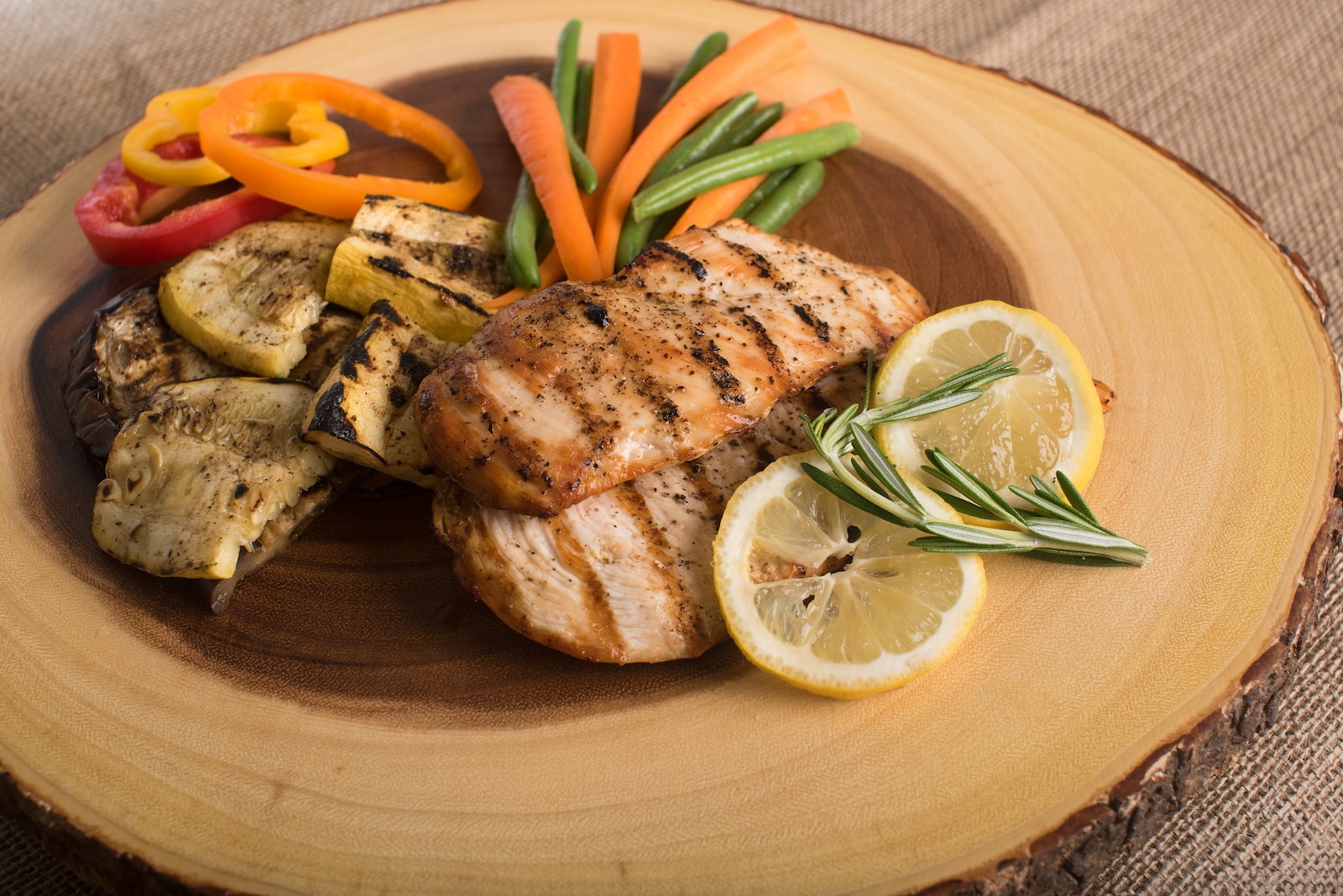When it comes to achieving a fit and toned physique, the combination of weight loss and muscle gain is a common goal for many individuals. One effective approach to accomplish this is by following a high-protein diet. In this comprehensive guide, we will explore the strategies, benefits, and considerations of using a high-protein diet to lose weight while simultaneously building muscle mass. Whether you are a fitness enthusiast or a beginner on your wellness journey, this article will provide you with valuable insights to help you achieve your desired body composition.

What is a High-Protein Diet?
A high-protein diet is an eating plan that prioritizes the consumption of protein-rich foods while controlling the intake of carbohydrates and fats. Proteins are essential macronutrients that play a crucial role in muscle repair, growth, and overall body functioning. By increasing protein intake, you can support muscle development and enhance the fat-burning process, leading to weight loss and muscle gain.
The Benefits of a High-Protein Diet
- Promotes Muscle Growth: Adequate protein intake provides the necessary amino acids to repair and build muscle tissue, leading to increased muscle mass and strength.
- Boosts Metabolism: Protein has a higher thermic effect compared to carbohydrates and fats, meaning that your body burns more calories during digestion and metabolism.
- Increases Satiety: Protein-rich foods help you feel fuller for longer periods, reducing cravings and overall calorie intake.
- Preserves Lean Body Mass: When in a calorie deficit for weight loss, a high-protein diet helps prevent muscle breakdown and promotes the preservation of lean body mass.
- Enhances Fat Burning: Protein stimulates the production of hormones that promote fat oxidation, facilitating the breakdown and utilization of stored fat for energy.
- Regulates Blood Sugar Levels: Protein helps stabilize blood sugar levels by slowing down the absorption of glucose into the bloodstream, preventing spikes and crashes in energy levels.
How to Implement a High-Protein Diet
- Calculate Your Protein Needs: Determine your daily protein requirements based on your body weight, activity level, and goals. A general guideline is to consume 0.8 to 1 gram of protein per pound of body weight.
- Choose High-Quality Protein Sources: Opt for lean protein sources such as chicken breast, turkey, fish, eggs, Greek yogurt, cottage cheese, tofu, and legumes. These foods provide high-quality protein with minimal added fats and carbohydrates.
- Balance Macronutrients: While protein is the primary focus, ensure you are also consuming adequate amounts of healthy fats and complex carbohydrates. This will help you keep an overall nutritional balance.
- Distribute Protein Intake Throughout the Day: Aim to have protein with each meal and snack to maximize muscle protein synthesis. This helps maintain a positive protein balance, supporting muscle growth and repair.
- Include a Variety of Foods: Incorporate a diverse range of protein sources. Different foods offer various essential amino acids and micronutrients beneficial for overall health.
FAQs (Frequently Asked Questions)
Q1: Can a high-protein diet lead to weight gain?
A: When combined with a proper exercise routine and calorie control, a high-protein diet is unlikely to cause weight gain. It promotes weight loss by enhancing metabolism, increasing satiety, and preserving lean muscle mass.
Q2: Are there any risks associated with a high-protein diet?
A: While a high-protein diet is generally safe for healthy individuals, excessive protein intake can strain the kidneys. It is essential to stay hydrated and consult with a healthcare professional. Especially, if you have prior kidney related health problems.
Q3: Can vegetarians and vegans follow a high-protein diet?
A: Absolutely! Plant-based protein sources like tofu, tempeh, seitan, legumes, and quinoa are excellent options for individuals following vegetarian or vegan lifestyles. These alternatives provide ample protein while accommodating dietary restrictions. We have created a guide for a vegan high-protein diet as well.
Q4: Should I consume protein supplements on a high-protein diet?
A: While protein supplements can be convenient, they are not necessary for everyone. It is best to prioritize whole food sources of protein and use supplements as a complement if needed or recommended by a healthcare professional.
Q5: How long does it take to see results on a high-protein diet?
A: The rate at which you see results can vary depending on factors, so don’t panic! Your starting point, exercise regimen, and overall adherence to the diet can have an influence. Consistency, along with a balanced exercise routine, is key to achieving sustainable results.
Q6: Can I combine a high-protein diet with other dietary approaches?
A: Yes, you can customize your high-protein diet to align with other dietary approaches like intermittent fasting or low-carbohydrate diets. However, it is essential to maintain proper nutrition and consult with a healthcare professional to ensure your approach is safe and effective.
Conclusion
In conclusion, a high-protein diet can be a valuable tool for those seeking to lose weight and gain muscle simultaneously. By prioritizing protein-rich foods, balancing macronutrients, and following a well-structured eating plan, you can optimize your body composition and achieve your fitness goals. Remember to personalize your approach based on your individual needs. Monitor your progress, and seek guidance from healthcare professionals or registered dietitians to ensure a safe and effective journey.
6 thoughts on “How to Lose Weight and Gain Muscle Using a High-Protein Diet”